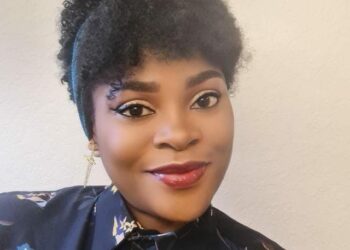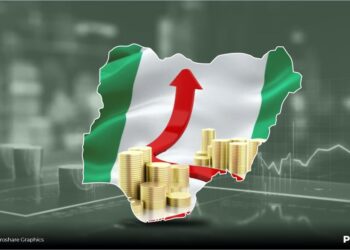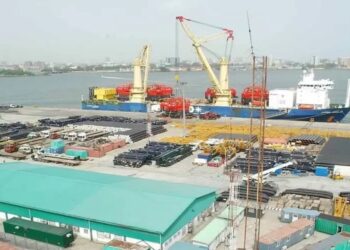Nigeria being poverty capital of the world has become a cliche. The country is on the path of fulfilling The Economist magazine’s prediction that in the not too distant future 80 per cent of the world’s poorest will reside in Nigeria and Democratic Republic of Congo. All hands must be on deck to negate this prophecy.
Last month, the nation was stunned with a Report from National Bureau of Statistics NBS confirming that 133 million Nigerians live in MultiDimensional Poverty MDP. This is more alarming than the 90 million or thereabout earlier said to be living in extreme poverty in Nigeria. What is the difference? The 90 million is calculated based on daily $2.15 income per person, MDP introduces other dimensions like quality of health and education hence multidimensional. Either way Nigerians are getting poorer by the day.
Joining the fray were two other gentlemen who spoke for two separate institutions. Professor Kingsley Moghalu’s Institute for Governance and Economic Transformation IGET published a 50 page document ‘Nigeria’s Poverty Trap and How to End it’ which is in tandem with the NBS report as it highlighted the multidimensional poverty over income based poverty.
The second gentleman Mr Asue Ighodalo, the immediate past chairman Nigerian Economic Summit Group NESG, while delivering his valedictory address at the close of the 28th Summit spoke on converting from shared poverty to shared prosperity. While the NBS was descriptive of our poverty we had fair nuggets of prescription to end poverty in Nigeria in the IGET document and Asue Ighodalo’s valedictory speech.
The IGET report while not deemphasising the importance of per capita GDP income in reducing poverty, seem to assert that targeting aspects of poverty and reducing them individually is more important, like has been attempted with MDGs and SDGs. Past chairman Asue Ighodalo feels otherwise. He puts a growing GDP to almost 10 trillion USD by 2050 as the way to go. The question is where lies the answer?
Isn’t it a lack of adequate national and individually income that birth’s MDP? If we can’t solve the problem of income generation we cannot solve MDP. Why do nations gun for sustainable GDP growth? It is because in growing GDP millions are at work receiving salaries and wages, the more vibrant and inclusive the growth the more people are at work and lifted out of poverty in a sustainable way. This is unlike the handouts path which I associate with offering of alms or spoon feeding with fish.
Handout is precisely what has been the situation for last 8 years. The economy has stagnated at levels below what it was in 2015 and government beats it’s chest with intervention programs. They are surprised poverty actually increased despite their numerous handouts and federal goverment scurry to blame state governments. They.had put the cart before the horse. If you seeking proof look no further than the MDGsand SDGs, earlier attempts to reduce poverty but to no avail. I see little justification in going this route as the SDGs is more multidimensional than the new one. Did China lift 750million people out of poverty by MDGs or SDGs such that we in Africa follow the route?
Often we also extract the wrong lessons from the Chinese miracle. We talk about China’s investment in human capital, education, forgetting it was backed up with huge capital accumulation into China to grow the Chinese economy and absorb the output of the human investment. Why are our skilled youths fleeing in droves? They can’t be absorbed into good paying jobs because we didn’t pay attention to national capital goods accumulation at a rate that exceeds human capital development and accumulation.
This is where Asue Ighodalo valedictory speech is of utmost importance because he gave the income growth option as the cornerstone for prosperity. As paraphrased by Mr Onwuamaeze in another publication, Mr Ighodalo tasked those entrusted with drafting the Nigerian Agenda 2050 to bequeath the country with an economy whose size will be between $4.5 trillion to $9 trillion dollar in next 25 years in order for country to have shared prosperity, rather than shared poverty. He said “we must then set ourselves the target of growing at 15 per cent everyyear.”
At the core of the country’s inability to sustain high GDP growth is our poor economic management skills at national level. As a result African countries currency lose multiples of their value in periods of economic crises sending inflation high and impoverishing the citizens. Understanding what makes for proper macromanagement of an economy is a most before we proceed to micromanage dimensions of poverty.
I am in tandem with Mr Ighodalo as I had written the article Nigeria Attaining Trillion Dollar Economy in the Punch of April 2022 https://punchng.com/nigeria-attaining-trillion-dollar-economy/. Also available is a book Nigeria Attaining Trillion Dollar Status published February 2021 where I highlighted how Nigeria had previously attained a 0.6 trillion dollar economy and could do multiples of it in future. Mr Ighodalo was bolder and looked possibilities of a $10 trillion dollar economy in the face, this is the elite concensus we need as requested by Prof. Kingsley Moghalu.
Anyone expecting favourable elite concensus from the Nigerian elite is expecting too much. Elites move their societies forward not the ordinary folks but the Nigerian elite is very selfish and pernicious, it is usually what is in it for them and the rest of society can go to blazes. Typically a section of our elite would say “with lack in the land the cubs of the lion will always find prey to feast on’ that is Nigerian elite for you. But Awo’s prophecy is coming to pass as hyenas eat the cubs of lionesses. Our police men are being mowed down in protecting the elite. I hope these security personnel be withdrawn maybe the brains of our elite will be reset. At the end of the day most of the elite don’t have a clue on wealth creation as most of them are rent takers and not wealth creators.
To propagators of SDGs and MDPs I say you are in the sphere of redistribution of a country’s wealth and are irked with wealth inequalities within countries, but let’s know how to create and increase the wealth first. Let’s realise that increasing wealth of nations is a recent phenomenon that arrived with the industrial revolution in 17th century. Poverty of nations has been the burden of man since the fall in the garden of Eden. Furthermore how do we prevent our elite in the guise of fighting for the poor, how do we prevent them from distributing the proceeds and wealth of our commons into their pockets.
One is not adverse to societal interventions for the weakest in society as the poor we shall always have. One is also weary of the state being the vehicle for this Intervention. Could our religious organisations be encouraged to be at the fore? They should make their members conscious and conscientious towards the less privileged. They could also help society organise robust safety nest rather than the state doing it. Often times I perceive disdain for the less privileged amongst our elite and the religious bodies should help exorcise this from their congregants who make up the elite.
A balance has to be struck between both pathways to eradicating poverty. For now the scale should be tipped towards concentrating efforts on increasing GDP income. Unfortunately this has not received as much attention as reducing multidimensional poverty. I acknowledge Moghalu’s books in this regard, especially ‘Build Innovate and Grow’ but as Ighodalo said the work of the organisation putting together ‘Agenda 2050’ is cut out for them as the devil is in the details. However no need to reinvent the wheel as many Asian countries have successfully looked into the tool box of nations wealth creation and applied the necessary kits for wealth creation. Nigeria should do the same.
Olugbenga Jaiyesimi jerry3jaiye@gmail.com





